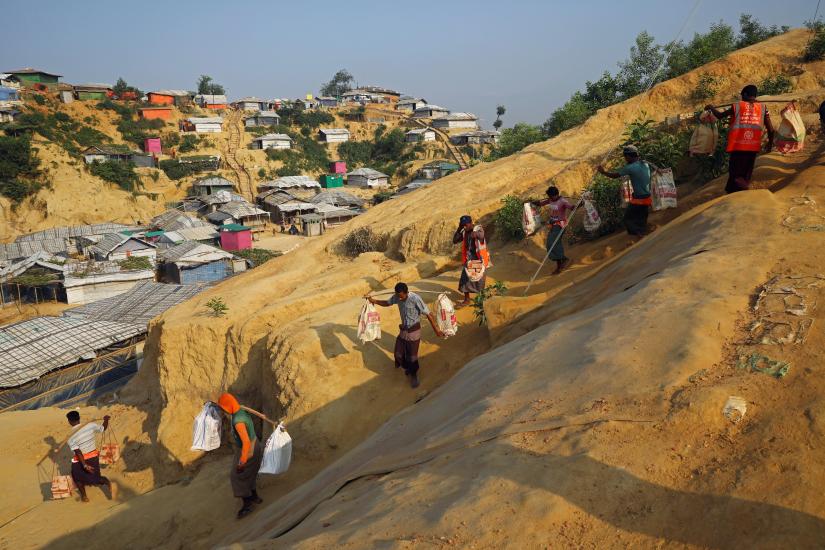 The UK government has unveiled a new £87-million aid package to support the Bangladesh government deal with the Rohingya refugees stranded in the country since they fled persecution from neighbouring Myanmar. The additional funds lifts Britain’s contribution since the start of the crisis in August 2017 to a total of £226 million.
The UK government has unveiled a new £87-million aid package to support the Bangladesh government deal with the Rohingya refugees stranded in the country since they fled persecution from neighbouring Myanmar. The additional funds lifts Britain’s contribution since the start of the crisis in August 2017 to a total of £226 million.
The further aid package will help provide food, healthcare, water, sanitation, care and counselling for sexual violence survivors, as well as protection for vulnerable groups including women and girls, UK secretary of state for international development Alok Sharma said in a statement released on Monday.
He said: “It is hard to truly grasp the size of the humanitarian crisis faced by the Rohingya people. More than 700,000 were forced to flee their home in the face of horrific brutality. The UK has worked with the government of Bangladesh to provide lifesaving aid, including food, water and shelter, as well education and counselling as they rebuild their lives.
“Women and girls represent over half of the camp population in Bangladesh, and this new funding will provide vital support for them, such as critical reproductive health care, and a new emergency shelter for survivors of severe gender-based violence and trafficking. This support announced today demonstrates our continued commitment to the Rohingya people.”
The latest aid package comes after more than two years since the crisis began, with the UK saying its overarching aim to find a solution that means the Rohingya can voluntarily return to Myanmar in safety and dignity.
The new package of UK aid will provide medical consultations for thousands of refugees including through mobile health clinics, for sustaining the Rohingya refugee operation in Cox’s Bazar. It will also mean continued support for an early warning system to detect diseases before they spread; food, clean water and basic sanitation such as toilets for thousands of people; cooking gas to prevent further damage to local forests; increased support for women and girls, who will get access to women-only safe spaces, an emergency shelter for survivors of severe-gender based violence and trafficking and comprehensive sexual and reproductive health care; and support to thousands of vulnerable Bangladeshi families, who now have nearly a million refugees living in their neighbourhood.
 Others
Others
41113 hour(s) 33 minute(s) ago ;
Evening 08:27 ; Wednesday ; Jun 25, 2025
UK unveils £87m new aid package for Rohingyas
Send
Aditi Khanna, London
Published : 00:21, Sep 24, 2019 | Updated : 00:41, Sep 24, 2019
Published : 00:21, Sep 24, 2019 | Updated : 00:41, Sep 24, 2019
0 ...0 ...
/hb/
Topics: Top Stories
- KOICA donates medical supplies to BSMMU
- 5 more flights to take back British nationals to London
- Covid19: Rajarbagh, Mohammadpur worst affected
- Momen joins UN solidarity song over COVID-19 combat
- Covid-19: OIC to hold special meeting
- WFP begins food distribution in Cox’s Bazar
- WFP begins food distribution in Cox’s Bazar
- 290 return home to Australia
- Third charter flight for US citizens to return home
- Dhaka proposes to postpone D8 Summit
Unauthorized use of news, image, information, etc published by Bangla Tribune is punishable by copyright law. Appropriate legal steps will be taken by the management against any person or body that infringes those laws.
Bangla Tribune is one of the most revered online newspapers in Bangladesh, due to its reputation of neutral coverage and incisive analysis.
F R Tower, 8/C Panthapath, Shukrabad, Dhaka-1207 | Phone: 58151324; 58151326, Fax: 58151329 | Mob: 01730794527, 01730794528


